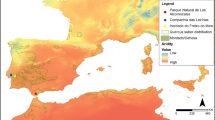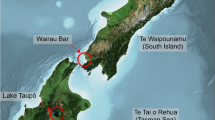Abstract
Theory in political ecology emphasizes the role of competing interests in shaping resource use. Although supportive of these approaches, this article draws on the importance of meanings assigned to ecological systems to question how epistemological differences also contribute to environmental conflicts. Following calls to examine the interface between environmental knowledge and action, consideration is given to ethnoecological constructs of forests on Mexico's southern Yucatan peninsula, home to the Calakmul Biosphere Reserve. To quiet opposition to the Reserve, government agents increased financial aid to the region in the form of conservation development projects. With the counsel of a Reserve director, local residents effectively used these projects to press for an environmentalism based on sustainable resource use. This position has associations with a local ethnoecology of land as a place of work. In examining how ethnoecologies played out in contests surrounding conservation, possibilities for a localized, alternative environmentalism are discussed, as well as the importance of environmental constructs for research in political ecology.
Similar content being viewed by others
REFERENCES
Acopa, D., and Boege, E. (1998). The Maya forest in Campeche, Mexico: Experiences in forest management at Calakmul. In Primack, R., Bray, D., Galletti, H., and Ponciano, I. (eds.), Timber, Tourists, and Temples: Conservation and Development in the Maya Forest of Belize, Guatemala, and Mexico. Island Press, Washington, DC, pp. 81-97.
Beltrán, Enrique (ed.) (1958). Los Recursos Naturales del Sureste y su Aprovechamiento. Instituto Mexicano de Recursos Naturales Renovable s, A.C., México, D.F.
Blaikie, P., and Brookfield H. (1987). Land Degradation and Society.London: Methuen.
Boege, E. (1995). The Calakmul Biosphere Reserve, Mexico. South-South Cooperation Program, U.N.E.S.C.O., Paris.
Ericson, J. (1996). Conservation and Development on the Border of the Calakmul Biosphere Reserve. M.A. thesis, Humbolt State University.
Escobar, A. (1999). After nature: Steps to an antiessentialist political ecology. Current Anthropology 40(1): 1-30.
Folan, W. (ed.). (1991) Programa de Manejo de la Biosfera Calakmul Campeche. Secretaria de De sarollo Social, Campeche.
Gates, M. (1993). In Default: Peasants, the Debt Crisis, and the Agricultural Challenge in Mexico.Westview Press, Boulder, CO.
Grossman, L. S. (1998). The Political Ecology of Bananas: Contract Farming, Peasants, and Agrarian Change in the Eastern Caribbean.University of North Carolina Press, Chapel Hill.
Haenn, N. (1998). ``The Government Gave Us the Land”: Political Ecology and Regional Culture in Campeche, Mexico. Doctoral dissertation, Indiana University.
Haenn, N. (1999). Community formation in frontier Mexico: Accepting and rejecting new migrants. Human Organization 58(1): 36-43.
Hart, J.M. (1987). Revolutionary Mexico: The Coming an d Process of the Mexican Revolution. Unive rsity of California Press, Berkeley, CA.
Hunter Jr., M. (1996). Benchmarks for managing ecosystems: Are human activities natural? Conservation Biology 10( 3): 695-697.
Johnson, B. H. (1999).Conservation, Subsistence, and class at the birth of superior national forest. Environmental History 4(1): 80-99.
Mansour, J. (ed.) (1995). Parks in Peril Sou rce Book.The Nature Conservancy, Arlington,VA.
Milton,K. (1996). Environmentalism and Cultural Theory: Exploring the Role of Anthropology in Environmental Discourse.Routledge, New York.
Murphy, J. (1998). Ways of Working in the Forest: Mediating Sustainable Development in Calakmul. Paper presented at the 97th Annual Meeting of American Anthropological Association, Philadelphia, PA.
Nazarea, V. (ed.) (1999a). Ethnoecology: Situated Knowledge/Local Lives. University of Arizona Press, Tucson.
Nazarea, V. (1999b). A view from a point: Ethnoecology as situated knowledge. In Nazare, V. (ed.), Ethnoecology: Situated Knowledge/Local Lives.University of Arizona Press; Tucson, pp. 3-20.
Nugent, D. (1993). Spent Cartridges of the Revolution:An Anthropological History of Namiguipa. University of Chicago Press, Chicago, IL.
Peluso, N. (1991). Rich Forests, Poor People: Resource Control and Resistance in Java.University of California Press, Berkeley.
Rocheleau, D., Thomas-Slayter, B., and Wangari, E. (eds.) (1996). Feminist Political Ecology: Global Issues and Local Experiences.Routledge Press, New York.
Schmink, M., and Wood, C. (1987). The ``political ecology” of amazonia. In Little, P. D., & Horowitz, M. M. (eds.), Lands at Risk in the Third World: Local Level Perspectives. Westview Press, Boulder.
Simonian, L. (1996). Defending the Land of the Jaguar: A History of Conservation in Mexico. Unive rsity of Texas Press, Austin, TX.
Stonich, S. (1993). ``I am Destroying the Land !”:The Political Ecology of Poverty and Environmental Destruction in Honduras.Westview Press, Boulder, CO.
Stonich, S., and Dewalt, B. (1996). The political ecology of deforestation in Honduras. In Sponsel, L., Headland, T., and Bailey, R., (eds.) Tropical Deforestation: The Human Dimension.Columbia University Press, New York, pp. 187-215.
Whitmore, T. C. (1990). An Introduction to Tropical Rain Forests. Clarendon Press, Oxford.
Wolf, E. R. (1999). Envisioning Power: Ideologies of Dominance and Crisis.University of California Press, Berkeley.
Rights and permissions
About this article
Cite this article
Haenn, N. The Power of Environmental Knowledge: Ethnoecology and Environmental Conflicts in Mexican Conservation. Human Ecology 27, 477–491 (1999). https://doi.org/10.1023/A:1018731708560
Issue Date:
DOI: https://doi.org/10.1023/A:1018731708560




